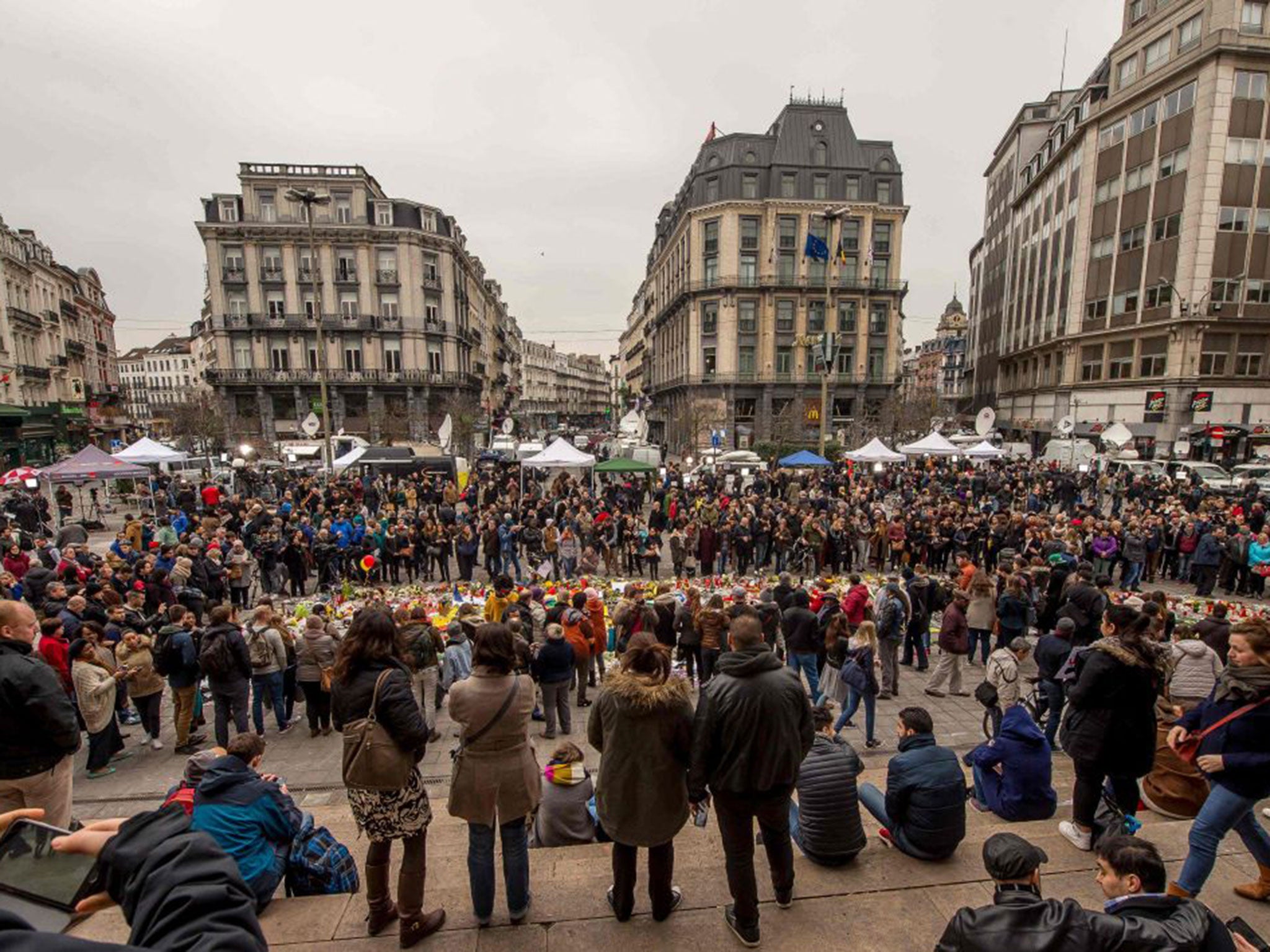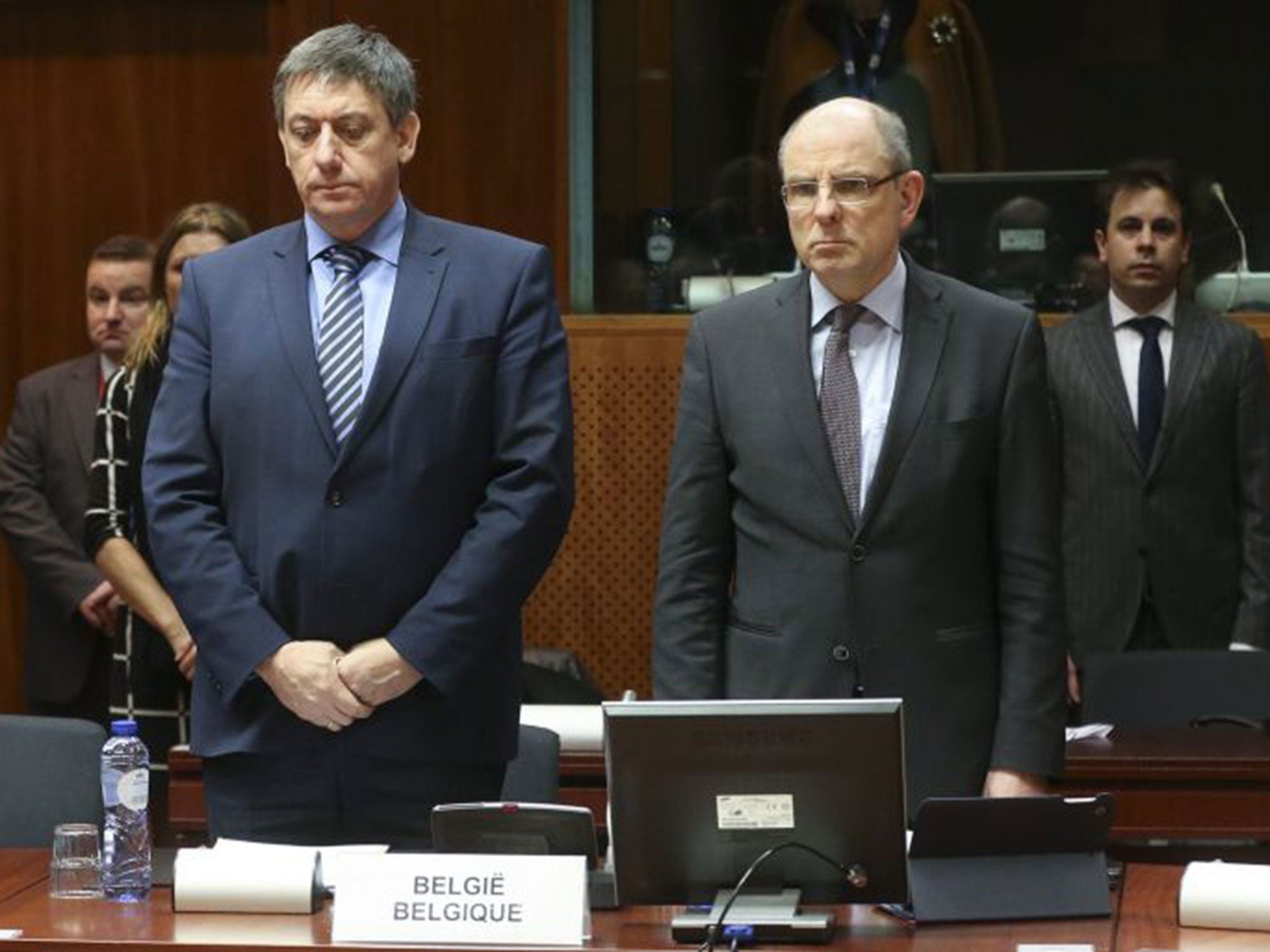Brussels attacks: EU crisis summit struggles to produce security strategy
Deep faultlines in Belgium’s response highlighted as the Interior and Justice Ministers both offered to resign over blunders

Your support helps us to tell the story
From reproductive rights to climate change to Big Tech, The Independent is on the ground when the story is developing. Whether it's investigating the financials of Elon Musk's pro-Trump PAC or producing our latest documentary, 'The A Word', which shines a light on the American women fighting for reproductive rights, we know how important it is to parse out the facts from the messaging.
At such a critical moment in US history, we need reporters on the ground. Your donation allows us to keep sending journalists to speak to both sides of the story.
The Independent is trusted by Americans across the entire political spectrum. And unlike many other quality news outlets, we choose not to lock Americans out of our reporting and analysis with paywalls. We believe quality journalism should be available to everyone, paid for by those who can afford it.
Your support makes all the difference.Ministers from across Europe are scrabbling to deliver a response to the Brussels terror attacks against a backdrop of mutual recriminations, as two Belgian politicians offered to resign over mistakes made.
The deep faultlines in Belgium’s response to terror were highlighted when Jan Jambon and Koen Geens, the Interior and Justice Ministers, both offered to resign over security blunders.
Mr Jambon accepted that “errors” were made after Belgium failed to heed a warning from Turkey last year that one of the bombers had been deported and was a “terrorist freedom fighter”.
But the Prime Minister, Charles Michel, refused to accept their resignations, instead reportedly saying: “In a time of war you cannot offer to leave the field.”
The crisis summit was intended as a first step to agreeing a clearer EU-wide security strategy to counter the rapidly growing threat from Isis, after evidence of failure to co-ordinate effectively across European borders. Tuesday’s attacks killed at least 31 people, with a further 270 injured, 61 of them critically, yet critics say they could quite possibly have been prevented.
Ministers were preparing to call on the European Parliament to ratify urgently an agreement on sharing airline passengers’ data, known as PNR, which has been five years in the making and won the backing of EU governments in December. However, even now it remains unclear whether it will get the backing of the European Parliament. No date has yet been set for a vote on the measure.
The PNR scheme would allow law enforcement agencies across the EU to access a database containing information on travellers including their home addresses, itineraries, baggage, how they paid for their ticket, where they sat on the plane and whether they requested halal food.
Opponents, including some MEPs, have fiercely resisted the move, saying it infringes privacy, gathers more information than is needed and would not necessarily stop attacks.
France’s Interior Minister, Bernard Cazeneuve, has accused them of taking a highly irresponsible stance and its Prime Minister, Manuel Valls, called on left-wing and Green MEPs to reconsider their opposition.

Ministers were determined to give a show of European unity in the face of the attack. Theresa May, the Home Secretary, declared as she arrived in Brussels: “I am here to stand together with my Belgian counterpart, Jan Jambon, and interior ministers from across Europe… We will give Belgium the support it needs but our message is clear: the terrorists will not win.”
It emerged that two jihadi suspects in the Brussels attacks remained on the loose – not just one, as previously supposed. Police are still hunting for the man in a white suit seen at Brussels Zaventern Airport alongside Najim Laachraoui, an Isis bomb-maker, and Brahim el-Bakraoui, the pair who detonated their explosive-packed luggage, killing 11 people.
But officials revealed that another unnamed terrorist suspect was seen on CCTV footage talking to el-Bakraoui’s brother, Khalid, shortly before he blew himself up at Maelbeek metro station, killing 20 people.
The Belgian government continued to be buffeted by criticism. Turkish authorities claimed that Brahim el-Bakraoui had been deported back to Belgium not just once, as previously disclosed, but twice, while attempting to join jihadists in Syria. The expulsions were in June and August last year.
Khalid el-Bakraoui had also visited Turkey under suspicious circumstances before returning to Belgium. Brussels, however, failed to keep track of the brothers on their return even though – as Mr Jambon admitted – Brahim, who was on parole after serving part of a nine-year sentence for armed robbery, could have been apprehended for breaching the conditions of his release.
Brahim was flown by Turkey to the Netherlands, not directly to Belgium, however, and the Dutch Justice Minister, Ard van der Steur, said the information given was not clear cut. “Turkish authorities didn’t tell us why they deported this person and didn’t follow usual procedure,” he said.
Even before the summit began, there was scepticism from senior intelligence officials about the extent of co-operation. Jean-Marie Delarue, the recently retired chief of the French government agency which oversaw intelligence surveillance, said of the Paris attacks: “We think there should be co-operation, we rely on other countries to give it to us, and I don’t think the Belgians gave us precise information.”
The US is said also to be exasperated by the bureaucracy of Belgian security services and a seeming lack of co-operation. “Add to that the problem of two languages, lack of Arabic speakers and weak co-ordination between national and local government and you have huge discrepancy between threat and response,” said Bruce Riedel, a former senior CIA officer and White House adviser.
But Jean-Claude Juncker, the President of the European Commission, came to Belgium’s defence. “Let he who is without sin cast the first stone,” he said. “There was terrorism in Britain and in Germany in the 70s and 80s. There was terrorism in Spain, in Italy and much more recently in France. People should stop lecturing Belgium.”
Join our commenting forum
Join thought-provoking conversations, follow other Independent readers and see their replies
Comments